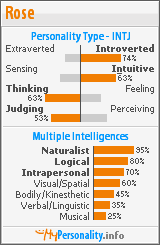In honour of the bug that has swooped down on Mel and her family today's word is virus.
A virus is a microscopic organism which can live outside of a host cell. Not all viruses hurt the cell in which they live, many just live their lives and pass on. Others cause a variety of effects and hepatitis, the common cold, flu and AIDS are all viruses. Our immune system has developed to try and fight viruses within our bodies. So some people may carry viruses, with no idea that they are doing so as their immune response manages to win the battle but not fully eradicate the virus.
There are other types of things that behave like viruses but have different mediums. Computer viruses are pieces of virulent code which can infect computers and self replicate. Some have disasterous results for your computer while others are harmless, such as chain emails. Memes are a form of virus that infect blogs.
In the film 'The Matrix', Agent Smith likens humanity to a virus and I have to agree. We have well and truly infected this planet we call home. I guess we have a choice, to be a nice happy smily virus, a virus that doesn't affect anything very much or a nasty destructive virus. I suspect that the Earth's immune system would be enough to take out this little virus, a few mega volcanoes and some nice dust clouds high in the atmosphere or perhaps a fresh little ice age. But then again maybe this little virus will kill it's host before the hosts immune system has a chance to fight back.
I would love to see us all just stop what we are doing. Becoming a nothing-y virus that doesn't affect much would be a helluva achievement. I would love to see us actively work with nature for the benefit of the planet. Nature aims for complexity and we are destroying this...
One thing I saw on TV very recently was a programme about a Devon farmer's desire to make her family farm sustainable. All farming is reliant on fossil fuels - even organic farms. There are however things called forest gardens where trees are planted with wide spacings and plants and bushes are grown inbetween, according to their requirements so that they fit the environment. In this way the complexity of a piece of land is harnessed in order to produce a fertile and largely self sustaining garden that produces food.
These gardens aren't suited to mass production or the use of oil guzzling tools. They encourage the use of old species grown unfashionable such as nut trees, medlars, quinces, damsons etc. There isn't room in these gardens for cereals or foreign imports that can not survive happily without being propped up with polythene or chemicals.
Imagine if we truly tried to work with the earth instead of against it?
She spoke of memories of flocks of seagulls coming to feed when they ploughed their land in her childhood. Now the birds no longer come when it is ploughed as ploughing has killed the rich ecosystem of the soil.... Are allotments similar somehow, with their neatly weeded rows, regularly composted.
Is there really another way?
I would love to think that the beautiful, wild looking gardens I saw could reallys support us....
The New Cottagesmallholder HQ
1 year ago







No comments:
Post a Comment